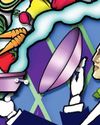About half of all heart attacks are mistaken for less serious problems and can increase your risk of dying from coronary artery disease.

You can have a heart attack and not even know it. A silent heart attack, known as silent myocardial infarction (SMI), accounts for 45% of heart attacks and strikes men more than women.
They are described as ‘silent’ because when they occur, their symptoms lack the intensity of a classic heart attack, such as extreme chest pain and pressure; stabbing pain in the arm, neck, or jaw; sudden shortness of breath; sweating, and dizziness.
“SMI symptoms can feel so mild, and be so brief, they often get confused for regular discomfort or another less serious problem, and thus men ignore them,” says Dr Jorge Plutzky, director of the vascular disease prevention programme at Harvard-affiliated Brigham and Women’s Hospital.
For instance, men may feel fatigue or physical discomfort and chalk it up to overwork, poor sleep, or some general age-related ache or pain. Other typical symptoms like mild pain in the throat or chest can be confused with gastric reflux, indigestion and heartburn.
Also, the location of pain is sometimes misunderstood. With SMI, you may feel discomfort in the centre of the chest and not a sharp pain on the left side of the chest, which many people associate with a heart attack. “People can even feel completely normal during an SMI and afterward, too, which further adds to the chance of missing the warming signs,” says Dr Plutzky.
Unaware of possible danger
Bu hikaye Health & Nutrition dergisinin September 2017 sayısından alınmıştır.
Start your 7-day Magzter GOLD free trial to access thousands of curated premium stories, and 9,000+ magazines and newspapers.
Already a subscriber ? Giriş Yap
Bu hikaye Health & Nutrition dergisinin September 2017 sayısından alınmıştır.
Start your 7-day Magzter GOLD free trial to access thousands of curated premium stories, and 9,000+ magazines and newspapers.
Already a subscriber? Giriş Yap

Internet Can Boost The Health Of The Elderly!
Here are five ways the Internet can help boost your health.

Hair Today, Gone Tomorrow
Going through major hairfall? These could be the reasons…

What's Your Sleep IQ?
Answer these questions so you can identify poor sleep patterns or symptoms and seek treatment.

Digital Mindfulness To Curb The Modern-Day Screen Addiction
…is the need of the hour, to curb the modern-day vice of screen addiction.

6 Ways …to Stay Fit And Healthy In The Cold.
6 ways …to stay fit and healthy in the cold.

A Diet For Your Skin
Eat according to your skin type. We show you how…

What To Eat And What Not Before And After A Workout
Your guide to what to eat and what not before and after a workout.

5 Lifestyle Changes To Adopt This Party Season
A peek at how binge smart, in this season of parties.

BRA-VO
!In this month of creating awareness for breast cancer, we show you how to choose the right bra to maintain goodbreast health…

Lose Weight
…Without getting hungry. Here’s how…